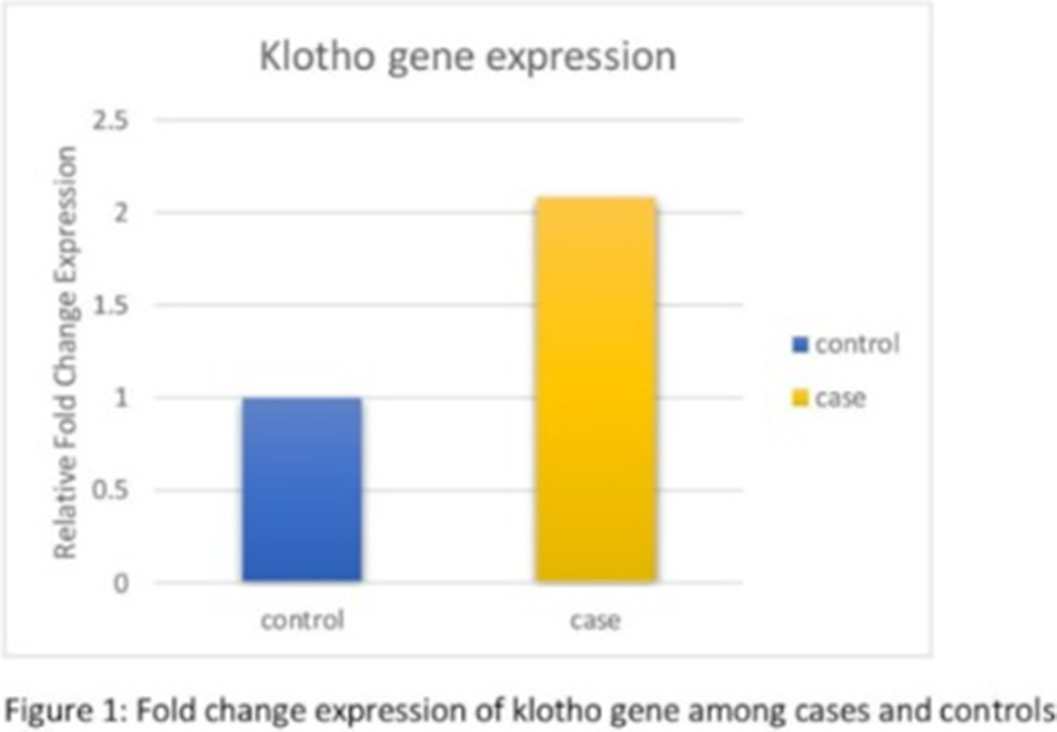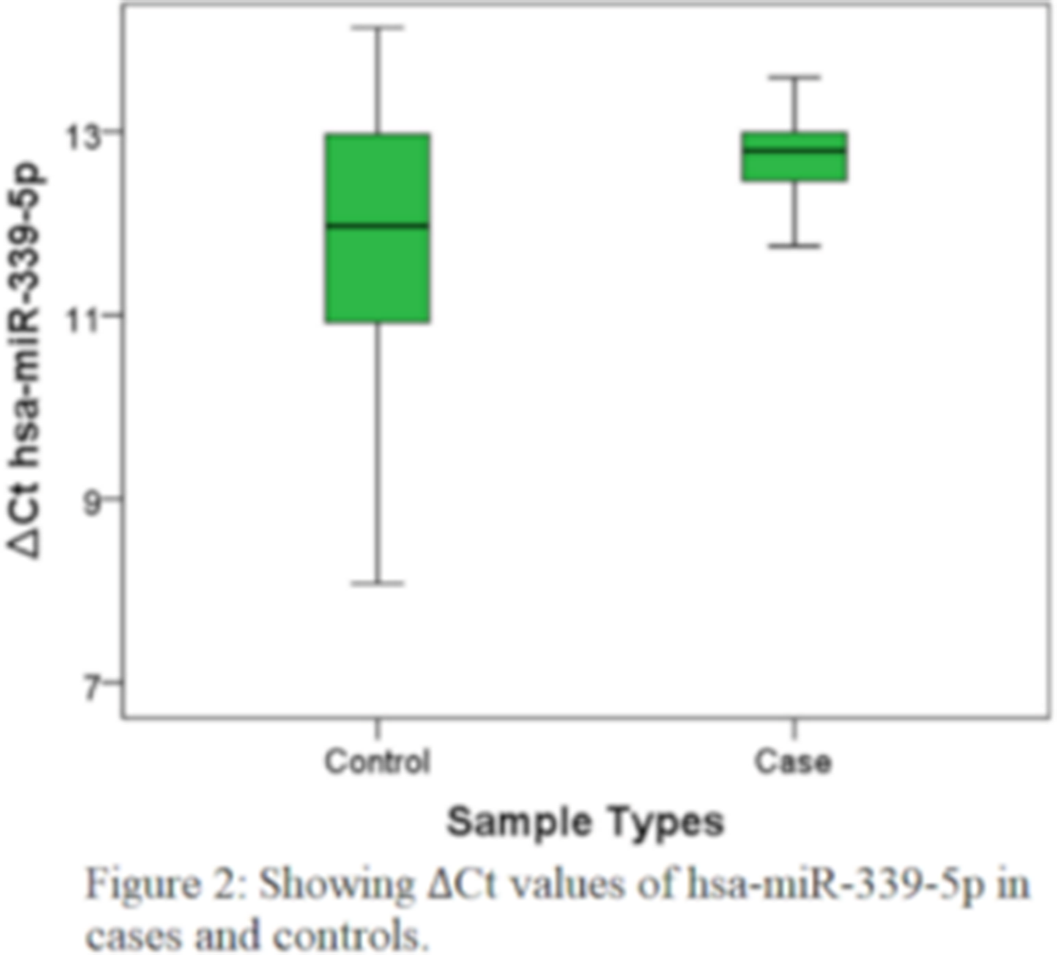No CrossRef data available.
Published online by Cambridge University Press: 19 July 2023
Schizophrenia is one of the major neuropsychiatric disorders affecting 1% of the population worldwide. Neuroinflammation, neurodevelopment, and oxidative stress are some of the crucial factors that can contribute to the pathogenesis of Schizophrenia. The Klotho gene is an antiaging gene whose dysregulated expression can lead to Schizophrenia and aging-like symptoms in patients. Klotho gene expression is regulated by miRNA- 339, which might lead to expression changes of the klotho gene in schizophrenia patients.
This study aimed to determine the role of miRNA- 339-5p in the regulation of Klotho gene expression and its circulatory levels in Schizophrenia
A total of 60 diagnosed patients with Schizophrenia per ICD 10 study subjects and 30 healthy controls were recruited for this study from the outpatient department of psychiatry of All India Institute of Medical Sciences, Jodhpur. Written informed consent was taken from all the study participants. All participants were given the right to withdraw from the study at any point in time. The institutional ethics committee of AIIMS, Jodhpur, approved this study. The expression analysis of the klotho gene and miRNA – 339-5p was performed using a reverse transcription polymerase chain reaction. The relative fold change expression was calculated by Livaak’s method ( 2^-double delta ct).
In Schizophrenia cases, serum Klotho protein levels were higher than healthy controls, though non-significant. We observed that the klotho gene was upregulated (figure 1), and miRNA- 339- 5p was downregulated (figure 2) compared to the healthy control.
Image:

Image 2:

The present study is the first to evaluate the klotho gene expression and correlate it with miRNA- 339- 5p. Our study found increased expression of the klotho gene in Schizophrenia patients as compared to the controls. In this study, we also observed that miRNA- 339- 5p was downregulated, which correlates with the klotho gene expression inversely. However, these are the preliminary findings due to less sample size and need to be replicated in the large sample size for further confirmation.
None Declared
To send this article to your Kindle, first ensure no-reply@cambridge.org is added to your Approved Personal Document E-mail List under your Personal Document Settings on the Manage Your Content and Devices page of your Amazon account. Then enter the ‘name’ part of your Kindle email address below. Find out more about sending to your Kindle. Find out more about saving to your Kindle.
Note you can select to save to either the @free.kindle.com or @kindle.com variations. ‘@free.kindle.com’ emails are free but can only be saved to your device when it is connected to wi-fi. ‘@kindle.com’ emails can be delivered even when you are not connected to wi-fi, but note that service fees apply.
Find out more about the Kindle Personal Document Service.
To save this article to your Dropbox account, please select one or more formats and confirm that you agree to abide by our usage policies. If this is the first time you used this feature, you will be asked to authorise Cambridge Core to connect with your Dropbox account. Find out more about saving content to Dropbox.
To save this article to your Google Drive account, please select one or more formats and confirm that you agree to abide by our usage policies. If this is the first time you used this feature, you will be asked to authorise Cambridge Core to connect with your Google Drive account. Find out more about saving content to Google Drive.
Comments
No Comments have been published for this article.